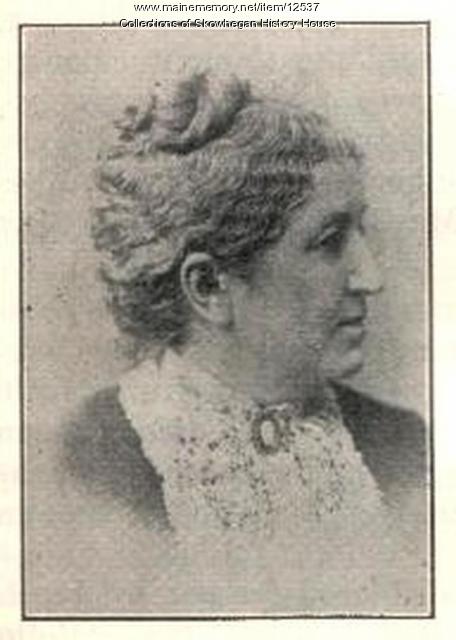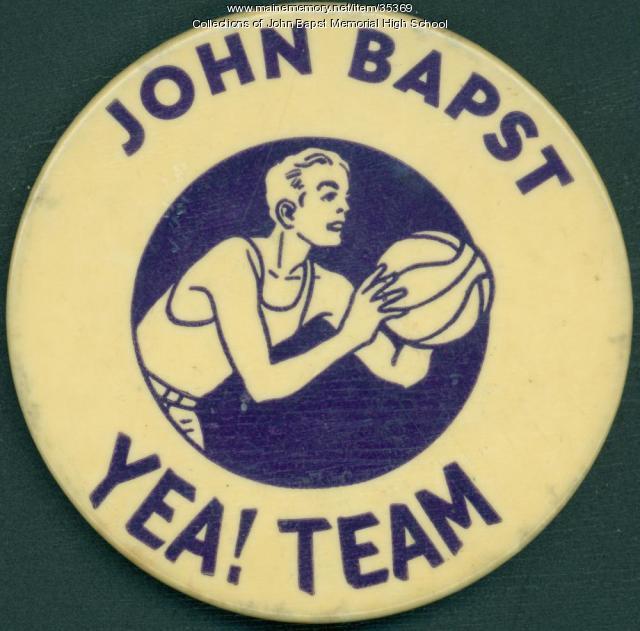Keywords: Newspapers
- Historical Items (418)
- Tax Records (1)
- Architecture & Landscape (2)
- Online Exhibits (90)
- Site Pages (313)
- My Maine Stories (16)
- Lesson Plans (2)
Online Exhibits
Your results include these online exhibits. You also can view all of the site's exhibits, view a timeline of selected events in Maine History, and learn how to create your own exhibit. See featured exhibits or create your own exhibit
Exhibit
A Handwritten Community Newspaper
The eight issues of South Freeport's handwritten newspaper, distributed in 1859, provided "general interest and amusement" to the coastal community.
Exhibit
In 1921, Guy Gannett purchased two competing Portland newspapers, merging them under the Portland Press Herald title. He followed in 1925 with the purchase the Portland Evening Express, which allowed him to combine two passions: photography and aviation.
Exhibit
A Portland newspaper wrote about an ice storm of January 28, 1886 saying, "The city of Portland was visited yesterday by the most inconvenient storm of the season."
Exhibit
Success at riding a bike mirrored success in life. Bicycling could bring families together. Bicycling was good for one's health. Bicycling was fun. Bicycles could go fast. Such were some of the arguments made to induce many thousands of people around Maine and the nation to take up the new pastime at the end of the nineteenth century.
Exhibit
Civil Defense: Fear and Safety
In the 1950s and the 1960s, Maine's Civil Defense effort focused on preparedness for hurricanes, floods and other natural disasters and a more global concern, nuclear war. Civil Defense materials urged awareness, along with measures like storing food and other staple items and preparing underground or other shelters.
Exhibit
Photojournalism & the 1936 Flood
Photojournalism & the 1936 Flood examines the monumental destruction caused by the historic flood of 1936 through the comprehensive and innovative photojournalism done by the Guy Gannett Publishing Company in the weeks surrounding the flood.
Exhibit
Passamaquoddy Indians from Washington County traveled to Portland in 1920 to take part in the Maine Centennial Exposition. They set up an "Indian Village" at Deering Oaks Park.
Exhibit
Student Exhibit: Rebecca Sophie Clarke
Sophie May, whose real name was Rebecca Clarke, was the author of over 40 books between 1861 and 1903. She wrote the "Little Prudy Series" based on the little town of Norridgewock.
Exhibit
May Baskets, a Dog, and a Party for Children
Two women thinking intruders were coming into their Biddeford Pool home, let the dog out to chase them away. Later, they discovered the truth about the noise at their door.
Exhibit
Mainers, like residents of other states, had differing views about slavery and abolition in the early to mid decades of the 19th century. Religion and economic factors were among the considerations in determining people's leanings.
Exhibit
The National Federation of Business and Professional Women's Clubs (NFBPWC) held their seventh annual convention in Portland during July 12 to July 18, 1925. Over 2,000 working women from around the country visited the city.
Exhibit
"Twenty Nationalities, But All Americans"
Concern about immigrants and their loyalty in the post World War I era led to programs to "Americanize" them -- an effort to help them learn English and otherwise adjust to life in the United States. Clara Soule ran one such program for the Portland Public Schools, hoping it would help the immigrants be accepted.
Exhibit
A Riot of Words: Ballads, Posters, Proclamations and Broadsides
Imagine a day 150 years ago. Looking down a side street, you see the buildings are covered with posters and signs.
Exhibit
In Maine, like many other states, a newly formed Ku Klux Klan organization began recruiting members in the years just before the United States entered World War I. A message of patriotism and cautions about immigrants and non-Protestants drew many thousands of members into the secret organization in the early 1920s. By the end of the decade, the group was largely gone from Maine.
Exhibit
John Bapst High School was dedicated in September 1928 to meet the expanding needs of Roman Catholic education in the Bangor area. The co-educational school operated until 1980, when the diocese closed it due to decreasing enrollment. Since then, it has been a private school known as John Bapst Memorial High School.
Exhibit
Toy Len Goon: Mother of the Year
Toy Len Goon of Portland, an immigrant from China, was a widow with six children when she was selected in 1952 as America's Mother of the Year.
Exhibit
Belfast During the Civil War: The Home Front
Belfast residents responded to the Civil War by enlisting in large numbers, providing relief from the home front to soldiers, defending Maine's shoreline, and closely following the news from soldiers and from various battles.
Exhibit
Capturing Arts and Artists in the 1930s
Emmie Bailey Whitney of the Lewiston Journal Saturday Magazine and her husband, noted amateur photographer G. Herbert Whitney, captured in words and photographs the richness of Maine's arts scene during the Great Depression.
Exhibit
Lewiston, Maine's second largest city, was long looked upon by many as a mill town with grimy smoke stacks, crowded tenements, low-paying jobs, sleazy clubs and little by way of refinement, except for Bates College. Yet, a noted Québec historian, Robert Rumilly, described it as "the French Athens of New England."
Exhibit
Field & Homefront: Bethel during the Civil War
Like many towns, Bethel responded to the Civil War by sending many soldiers and those at the homefront sent aid and supported families. The town grew during the war, but suffered after its end.
Exhibit
A Convenient Soldier: The Black Guards of Maine
The Black Guards were African American Army soldiers, members of the segregated Second Battalion of the 366th Infantry sent to guard the railways of Maine during World War II, from 1941 to 1945. The purpose of the Black Guards' deployment to Maine was to prevent terrorist attacks along the railways, and to keep Maine citizens safe during the war.
Exhibit
Margaret Chase Smith: A Historic Candidacy
When she announced her candidacy for President in January 1964, three-term Republican Senator Margaret Chase Smith became the first woman to seek the nomination of one of the two major political parties.
Exhibit
Lillian Nordica: Farmington Diva
Lillian Norton, known as Nordica, was one of the best known sopranos in America and the world at the end of the nineteenth and beginning of the twentieth centuries. She was a native of Farmington.
Exhibit
Remembering Mellie Dunham: Snowshoe Maker and Fiddler
Alanson Mellen "Mellie" Dunham and his wife Emma "Gram" Dunham were well-known musicians throughout Maine and the nation in the early decades of the 20th century. Mellie Dunham also received fame as a snowshoe maker.
























